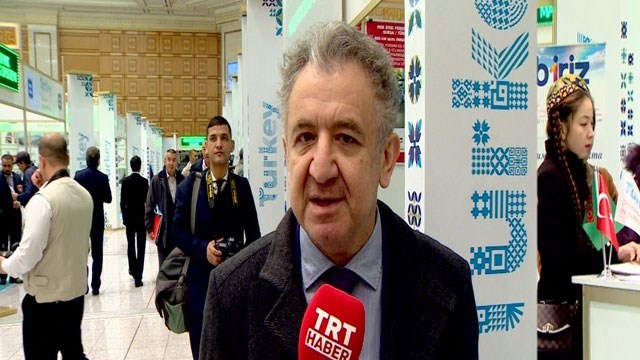Turkish diplomatic mission in Turkmenistan engaged in a campaign of intelligence gathering and collected information on the activities of critics of Turkish President Recep Tayyip Erdoğan, the Stockholm Center for Freedom reported based on judicial documents have revealed.
The information collected by the Turkish Embassy was used in criminal indictments on charges of terrorism by a Turkish prosecutor. According to a December 13, 2018 decision by prosecutor Birol Tufan, the Ankara Chief Public Prosecutor’s Office launched a separate investigation (file no. 2018/27556 ) into four Turkish nationals who were listed in espionage files dispatched by Turkish diplomats in Turkmenistan without any concrete evidence of wrongdoing.
As a result of a massive purge, the Turkish judiciary, intelligence services, diplomatic missions abroad and law enforcement authorities have become abusive tools in the hands of the Islamist government of President Erdoğan to prosecute critics, opponents and dissidents. The criminal justice system has often been abused by Erdoğan to persecute government critics, leading to the imprisonment of tens of thousands on false charges.
Judicial documents exposed how the Turkish Embassy in Turkmenistan triggered criminal investigations in Turkey. (The names and addresses of the Turkish nationals have been redacted for security reasons.):
Profiling files were conveyed to the foreign ministry by Mustafa Kapucu, the Turkish ambassador in Ashgabat between 2015 and 2019.
Critics of the Erdoğan government abroad, especially members of the Hizmet/Gülen movement, have been facing surveillance, harassment, death threats and abduction since President Erdoğan decided to scapegoat the group for his own legal troubles. They have often been denied consular services such as power of attorney and birth registry as well as having their passports revoked. Their assets in Turkey are seized and their family members at home risk criminal charges.
As previously disclosed by Nordic Monitor, the foreign ministry sent lists of profiled Turkish nationals in two CDs to the Ankara Chief Public Prosecutor’s Office, the national police and Turkey’s intelligence agency MIT on February 19, 2018 via an official document for further administrative or legal action, the punishment of their relatives back in Turkey and the seizure of their assets.
Public prosecutor Adem Akıncı, who received the foreign ministry document on February 23, 2018, forwarded the classified CDs including information on 4,386 Erdoğan critics to the organized crimes unit of the Ankara Police Department for further action. The police conveyed the results of its investigations to the public prosecutor.
Prosecutor Akıncı, who led the investigation into the assassination of Russian Ambassador Andrei Karlov in December 2016, was accused of suppressing the evidence that the killer had links to various jihadist groups including al-Qaeda and was radicalized by several pro-government imams, including two who worked for the government religious authority, the Diyanet. Nordic Monitor previously reported that several suspects told the court that Akıncı had forced them to testify during interrogation that the assassination was directed by the Gülen movement. They were later jailed after declining the prosecutor’s request to testify to that in court.
According to judicial documents released by the Ankara 4th High Criminal Court on January 16, 2019, the foreign ministry compiled a long list of foreign entities that were owned and/or operated by people who were seen as close to the movement.
Foreign Minister Mevlüt Çavuşoğlu confirmed systematic spying on Turkish government critics on foreign soil as by Turkish diplomatic missions in February, 2020. Çavuşoğlu said Turkish diplomats assigned to embassies and consulates have officially been instructed by the government to conduct such activities abroad. “If you look at the definition of a diplomat, it is clear. … Intelligence gathering is the duty of diplomats,” Çavuşoğlu told Turkish journalists on February 16, 2020 following the Munich Security Conference, adding, “Intelligence gathering and information collection are a fact.”


